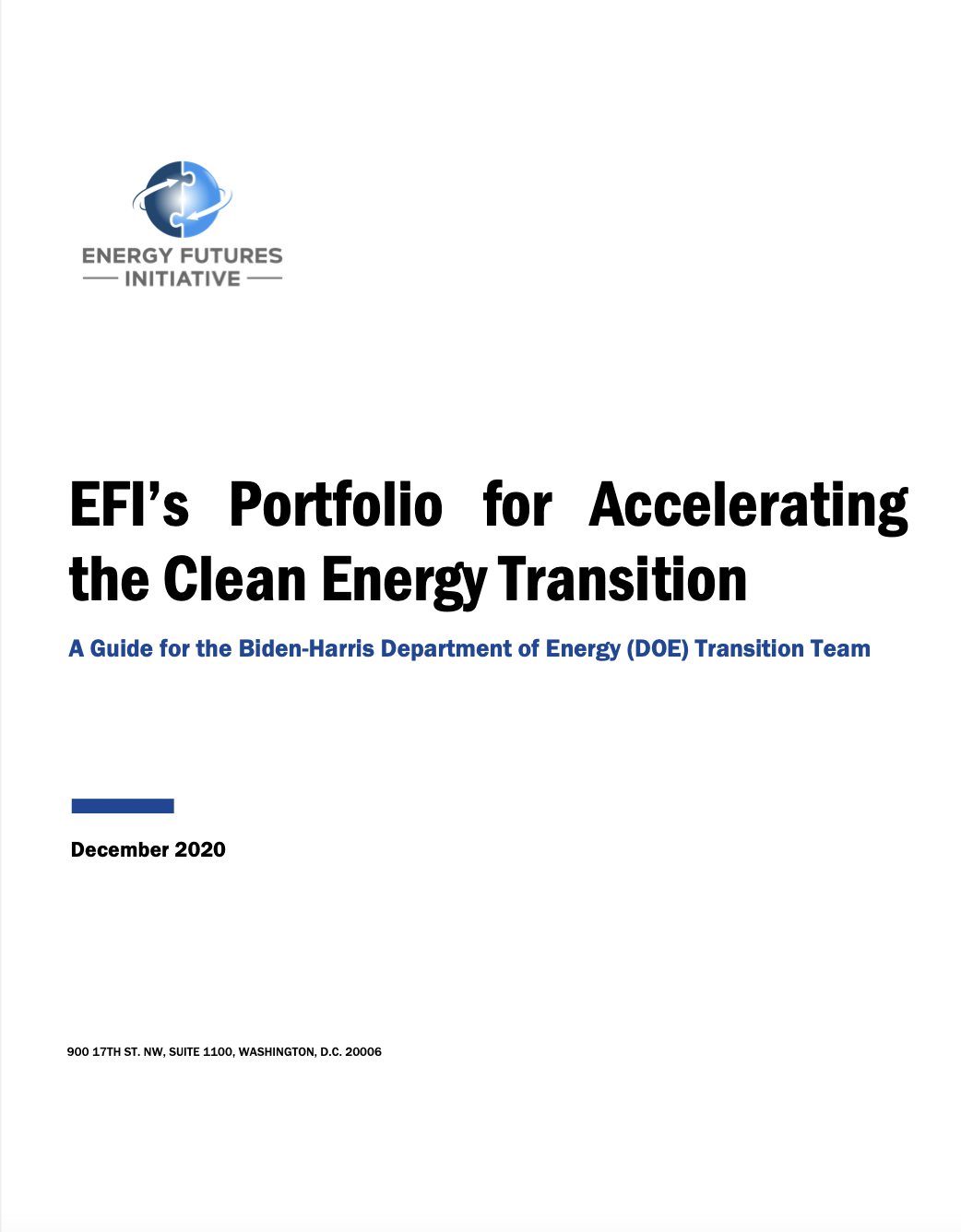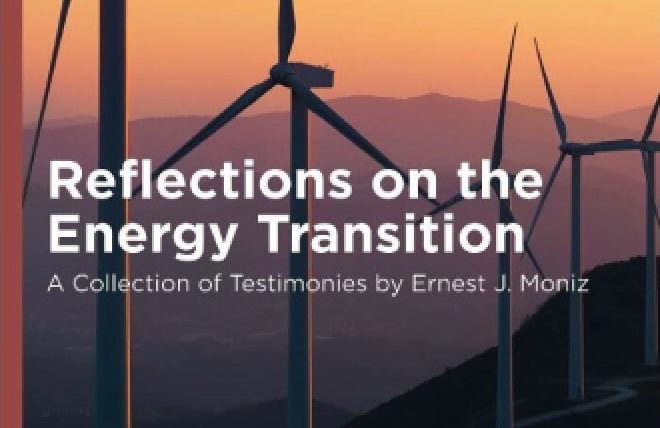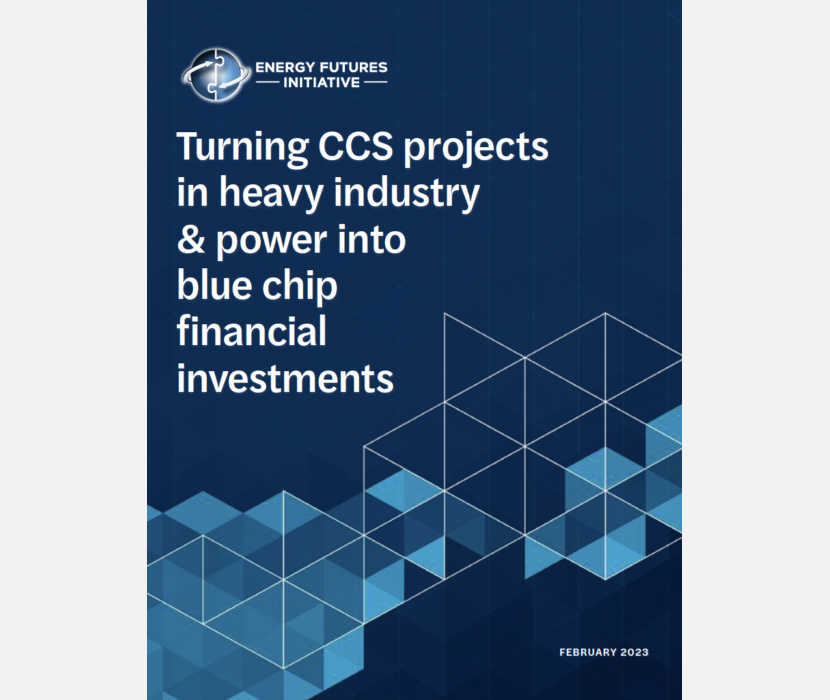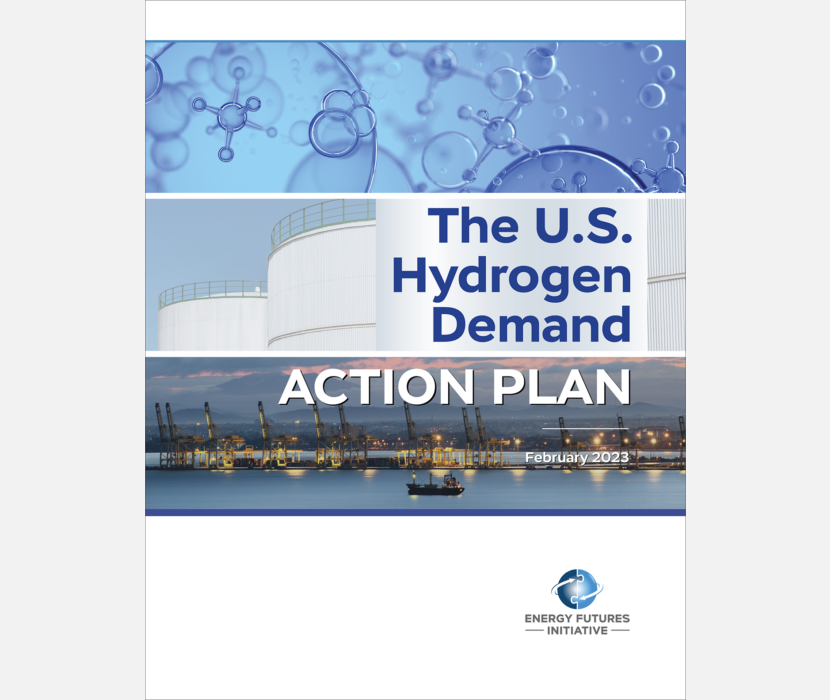EFI’s portfolio for Accelerating the Clean Energy Transition: A Guide for the Biden-Harris Department of Energy (DOE) Transition Team (December 2020) was issued by the Energy Futures Initiative (EFI) to the transition team preparing the Biden-Harris Administration before the 46th President took office. At the end of 2020, the Biden team was preparing to re-join the Paris Agreement and chart a course to a net-zero future by 2050.
The report, which was subsequently released publicly in 2021, is a compendium of work by EFI. Since its establishment in 2017, EFI has analyzed many policies, programs, and technologies needed for deep decarbonization. As the science of climate change has advanced, this analysis has increasingly focused on those qualities that are central to any climate action plan that can succeed in reaching the aggressive—but essential—net-zero goal, including:
Job Creation: The U.S. economy will benefit from millions of good jobs coming out of clean energy investment. The Labor-Energy Partnership, formed between EFI and the American Federation of Labor and Congress of Industrial Organizations (AFL-CIO), exists to identify and amplify opportunities for good job creation while addressing climate risks.
Optionality, Flexibility, and Innovation: Maximum optionality and flexibility will be needed to address the needs of different regions and of all end use sectors—including the industrial, heavy transportation and agricultural sectors that are hard to decarbonize. Breakthroughs will be needed, and EFI has surveyed and analyzed the technology development, demonstration, and deployment needed for a mid-century zero-emissions economy, including:
- Energy efficiency
- Advanced renewables, such as offshore wind
- Electricity storage from minutes to seasons
- Advanced modular nuclear technologies, both fission and fusion
- Carbon capture, utilization, and sequestration
- Hydrogen
- Carbon dioxide removal from the atmosphere and upper ocean layers and associated infrastructure
Secure and Sustainable Supply Chains: In the year’s following this report’s creation, the COVID pandemic and the fallout from the Russian invasion of Ukraine demonstrated the importance of secure supply chains for the entire economy. We are rapidly establishing new, un-tested supply chains of critical component parts that enable our clean energy transition. EFI is committed to helping develop sustainable and secure supply chains needed for dramatic scale-up of clean energy technologies, especially renewables and their enabling technologies.
Regional Solutions with Social and Environmental Justice: EFI has emphasized the important regional differences that must be accommodated in building climate and social equity solutions. Local and regional resources, expertise, and infrastructures are important catalysts for rapid and significant innovation.
In the report, EFI restated its mission to advance the policies, technologies, and programs that enable the formation of strong and sustainable coalitions. There needs to be a decade of supercharged innovation as a necessary component of a successful climate change risk mitigation program.
Related Content
(Share this post with others.)








